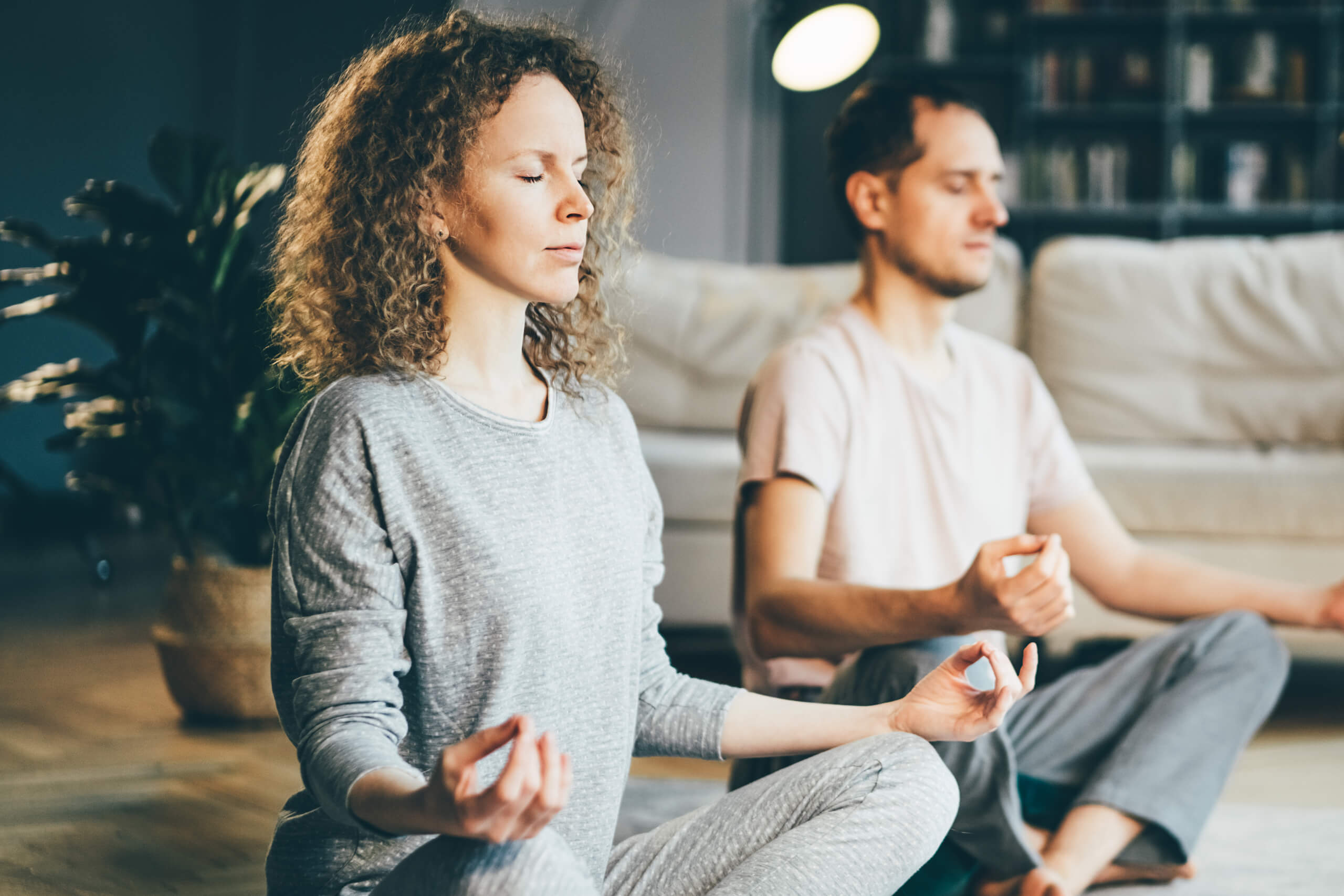Introduction
Do you find yourself tossing and turning at night, unable to get a good night’s sleep? You’re not alone. Millions of people struggle with sleep issues, which can have a significant impact on overall health and well-being. In this article, we’ll explore various natural ways to improve sleep quality, helping you wake up feeling refreshed and rejuvenated.
Establishing a Sleep Routine
Consistent Sleep Schedule
One of the most effective ways to improve sleep quality is by sticking to a consistent sleep schedule. Going to bed and waking up at the same time every day, even on weekends, helps regulate your body’s internal clock. This consistency can significantly improve the quality of your sleep over time.
Pre-Sleep Rituals
Establishing pre-sleep rituals can signal to your body that it’s time to wind down. Activities such as reading a book, taking a warm bath, or practicing relaxation exercises can create a soothing transition from wakefulness to sleep.
Creating a Sleep-Friendly Environment
Optimal Bedroom Temperature
Keeping your bedroom at an optimal temperature can greatly enhance sleep quality. Most experts suggest a cooler room, around 60-67 degrees Fahrenheit, to facilitate better sleep.
Noise Control
Minimizing noise in your bedroom environment is crucial. Consider using earplugs, a white noise machine, or soundproofing techniques to reduce disruptive sounds.
Comfortable Bedding
Investing in a comfortable mattress and pillows can make a big difference. Choose bedding that supports your preferred sleep position and comfort needs.
Diet and Nutrition
Foods That Promote Sleep
Certain foods can promote better sleep. Incorporating foods rich in tryptophan, magnesium, and melatonin, such as turkey, almonds, and cherries, can help improve sleep quality.
Foods to Avoid Before Bed
Avoiding heavy, spicy, or acidic foods before bedtime can prevent discomfort and disruptions. Caffeine and sugar should also be limited in the evening hours.
Physical Activity
Benefits of Regular Exercise
Regular physical activity can enhance sleep quality by reducing stress and anxiety, improving mood, and helping you fall asleep faster. Aim for at least 30 minutes of moderate exercise most days of the week.
Best Times to Exercise for Sleep
While exercise is beneficial, timing matters. Working out too close to bedtime can be stimulating. Try to finish exercising at least three hours before you plan to go to bed.
Managing Stress and Anxiety
Meditation and Mindfulness
Practicing meditation and mindfulness can significantly reduce stress and anxiety, promoting better sleep. Simple mindfulness exercises can be done in the comfort of your bed.
Deep Breathing Exercises
Deep breathing exercises can help calm the mind and body, preparing you for sleep. Techniques such as diaphragmatic breathing or the 4-7-8 method can be particularly effective.
Limiting Exposure to Screens
Blue Light Effects on Sleep
Exposure to blue light from screens can interfere with your body’s production of melatonin, a hormone that regulates sleep. Limiting screen time in the hour before bed can help.
Alternatives to Screen Time Before Bed
Instead of watching TV or using your phone, try engaging in relaxing activities such as reading a book, listening to calming music, or practicing gentle yoga.
Natural Supplements
Melatonin supplements can be effective for short-term use, particularly for those who struggle with falling asleep. Consult with a healthcare provider before starting any new supplement.
Magnesium
Magnesium is a mineral that supports many bodily functions, including sleep. It can be taken as a supplement or found in foods like leafy greens, nuts, and seeds.
Link to Night Night Supplement
For a natural supplement designed to reduce stress and promote sleep, consider trying Night Night. It’s formulated to help you relax and enjoy a restful night.
Herbal Remedies
Chamomile Tea
Chamomile tea has been used for centuries as a natural remedy to promote relaxation and improve sleep quality. Drinking a cup before bed can help you wind down.
Lavender Essential Oil
Lavender essential oil is known for its calming properties. Adding a few drops to your pillow or using a diffuser in your bedroom can create a serene sleep environment.
Avoiding Stimulants
Caffeine and Nicotine
Caffeine and nicotine are stimulants that can interfere with sleep. Avoid consuming them in the late afternoon and evening to improve sleep quality.
Alcohol Consumption
While alcohol may initially make you feel sleepy, it can disrupt your sleep cycle. It’s best to limit alcohol consumption, especially close to bedtime.

Regulating Light Exposure
Natural Light During the Day
Exposure to natural light during the day, particularly in the morning, helps regulate your circadian rhythm. Spend time outdoors or near windows to get sufficient light exposure.
Darkness at Night
Creating a dark environment at night is essential for good sleep. Use blackout curtains, an eye mask, or other methods to ensure your bedroom is dark.
Listening to Your Body
Understanding Sleep Signals
Pay attention to your body’s sleep signals, such as yawning or feeling drowsy. Going to bed when you feel tired, rather than pushing through, can lead to better sleep quality.
Avoiding Overthinking
Lying in bed overthinking can hinder your ability to fall asleep. Try techniques like journaling or setting aside “worry time” earlier in the evening to clear your mind.
Professional Help
When to See a Sleep Specialist
If natural remedies aren’t improving your sleep, it might be time to consult a sleep specialist. They can help diagnose and treat underlying sleep disorders.
Cognitive Behavioral Therapy for Insomnia (CBT-I)
CBT-I is a highly effective treatment for chronic insomnia. It involves changing negative thoughts and behaviors around sleep to promote better sleep habits.
Conclusion
Improving sleep quality naturally involves a combination of lifestyle changes and consistent habits. By implementing these strategies, you can enjoy a more restful and rejuvenating sleep. Remember, everyone is different, so it might take some time to find the perfect combination of methods that work for you. Sweet dreams!
FAQs
How long does it take to improve sleep quality?
Improving sleep quality can take anywhere from a few days to a few weeks, depending on the changes you implement and your individual response to them.
Are natural sleep remedies safe for everyone?
Most natural sleep remedies are safe for the general population, but it’s always best to consult with a healthcare provider, especially if you have underlying health conditions.
Can dietary changes alone improve sleep quality?
Dietary changes can significantly impact sleep quality, but combining them with other lifestyle adjustments tends to be more effective.
How does stress affect sleep?
Stress can lead to difficulties falling and staying asleep. Managing stress through relaxation techniques can improve sleep quality.
What are the benefits of a good night’s sleep?
A good night’s sleep boosts your immune system, improves mood, enhances cognitive function, and promotes overall well-being.
Related Posts
23/12/2024
The Link Between Sleep and Mental Health: How Night Night Helps
Ever feel like a bad night’s sleep turns your world upside down? That’s no coincidence. Sleep and mental health are…
11/12/2024
5-HTP: Supporting Mood and Sleep
Struggling with mood swings or restless nights? You're not alone. In today’s fast-paced world, maintaining emotional…
29/11/2024
Mood-Boosting Foods and Supplements for Better Mental Well-being
In our fast-paced world, maintaining mental well-being is more challenging yet more crucial than ever. Beyond lifestyle…
17/11/2024
How GABA Improves Sleep Quality and Relaxation
In today’s fast-paced world, many people struggle with achieving a restful night’s sleep. Anxiety, stress, and hectic…
05/11/2024
The Role of L-Theanine in Promoting Relaxation and Sleep
L-Theanine, an amino acid primarily found in tea leaves, has been celebrated for its unique ability to promote…
24/10/2024
How to Manage Stress Naturally with Supplements
Stress is an unavoidable part of life, but how we manage it can make all the difference in our mental and physical…
12/10/2024
Understanding the Gut-Brain Connection: Diet for Mental Health
Did you know that your gut and brain are constantly communicating? It’s called the gut-brain axis, and it plays a vital…
30/09/2024
The Role of Adaptogens in Reducing Stress and Anxiety
In today's fast-paced world, stress and anxiety are common challenges many of us face daily. While lifestyle changes…
18/09/2024
Top 7 Natural Supplements to Boost Your Mental Clarity
In today’s fast-paced world, maintaining mental clarity is more important than ever. Whether you’re juggling work…










